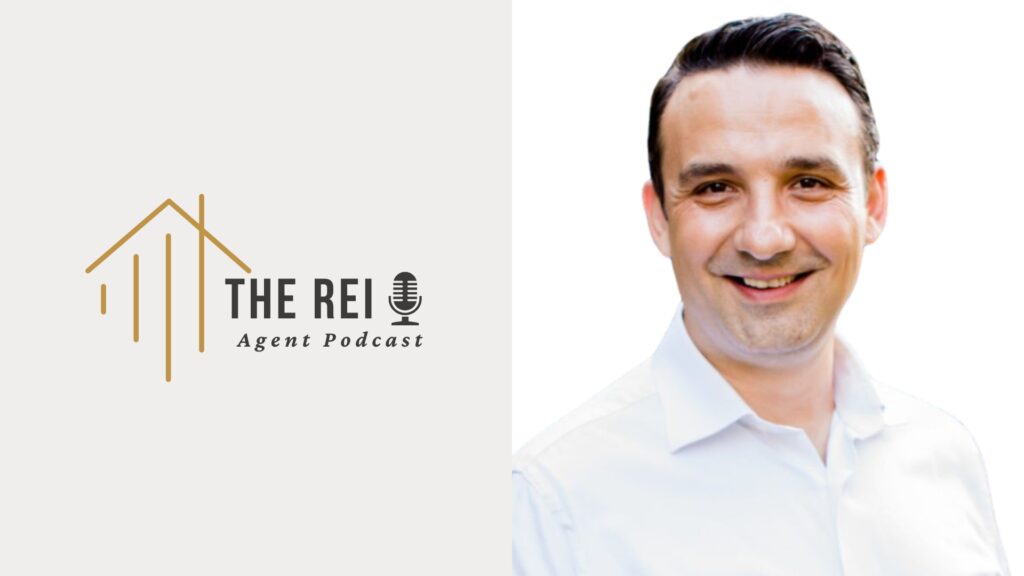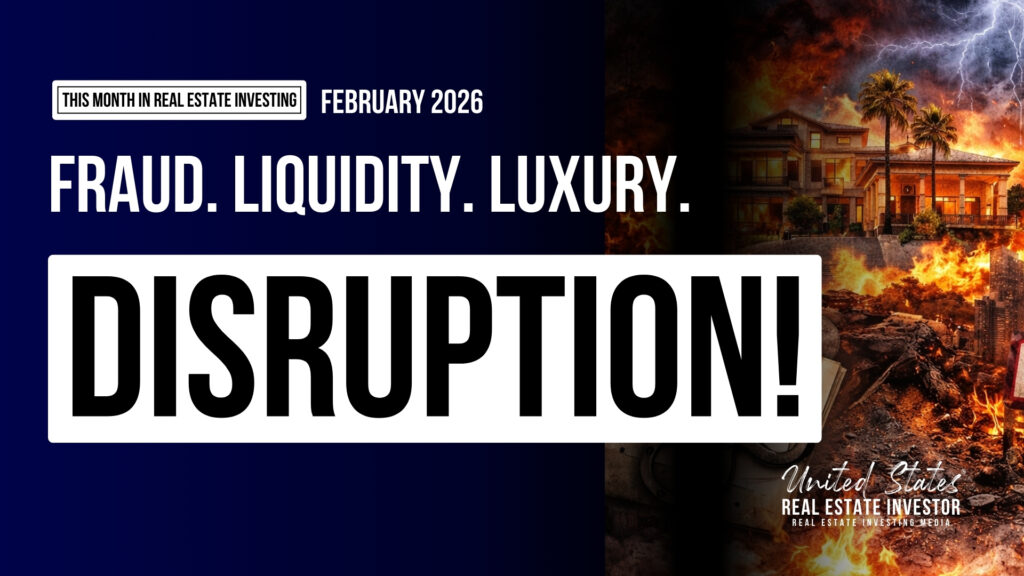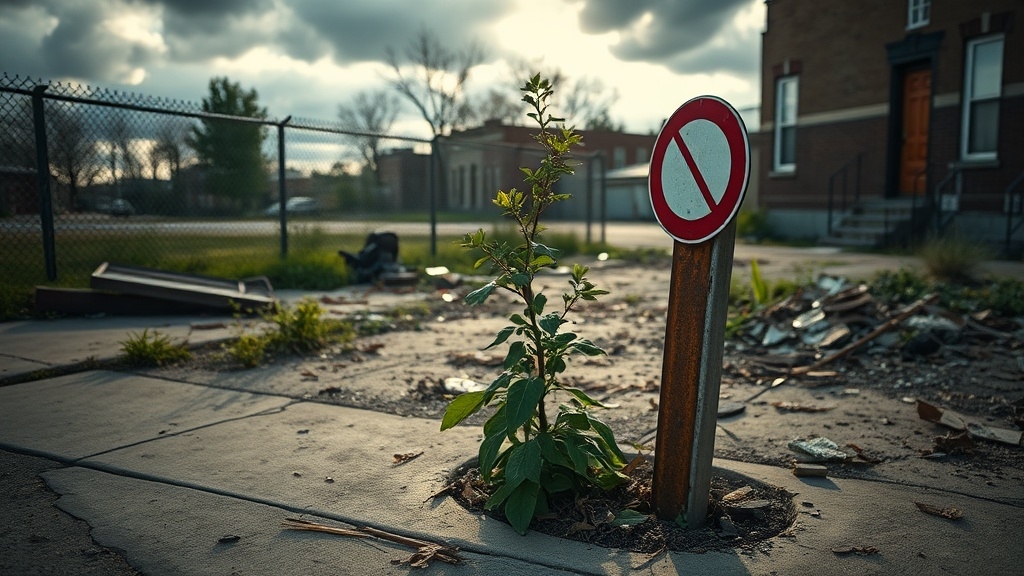Key Takeaways
- Real estate agents must stop selling short-term and start thinking long-term, like true wealth advisors.
- Who you want as a tenant should determine what you buy, not the other way around.
- Your biggest disadvantage might be your greatest wealth-building superpower.
The REI Agent with Erion Shehaj
Follow and subscribe to The REI Agent on social
Redefining Wealth Through Tangible Action
In this powerful episode of The REI Agent Podcast, host Mattias Clymer welcomes a guest whose story rips open every excuse you’ve ever had about building wealth.
Erion Shehaj didn’t just learn real estate investing—he rewrote the rules after arriving in the U.S. from communist Albania.
Born into a world where private property didn’t even exist, Erion’s journey from “green” immigrant to Texas investment broker is the embodiment of transformation.
“Most people don’t realize the opportunity until it’s gone. But for someone like me, the contrast was undeniable.”
This episode isn’t about tips and tricks.
It’s about mindset.
About rethinking the very role of a real estate agent.
About flipping the script from short-term transaction hunter to long-term wealth advisor.
Real Estate Isn’t Just a Transaction. It’s a Legacy.
Erion and Mattias both agree: Real estate isn’t just about deals—it’s about lifestyle design.
Erion explains how the average agent is stuck in “sell mode” while leaving a fortune on the table by not investing themselves.
“Every year of work should leave behind an asset that proves you lived that year intentionally.”
He challenges listeners to stop chasing closings and instead become the trusted advisor clients stay with for life.
His strategy?
Think like a financial planner, but build with bricks.
“You don’t need thousands of doors. You need enough to live life on your terms.”
Your Property Attracts the Tenant You Deserve
One of the most game-changing insights in this episode comes from how Erion reframes tenant management.
He warns investors not to obsess over spreadsheets before asking a single, pivotal question: Who do you want to serve?
“The tenants you attract are based on the homes you buy—choose wisely or suffer the return on brain damage.”
From Airbnb to long-term rentals, Erion explains that investing isn’t just about ROI—it’s about quality of life.
Treat it like a business, not a gamble. If you’re attracting stress, it’s because you didn’t plan for peace.
Capitalism Has One Rule: Own Something
Mattias and Erion dig deep into the wealth gap mindset. Why do the rich keep getting richer? Not because of luck. Not even because of higher income.
“It’s because they own assets. That’s it. That’s the game.”
Erion hammers this truth: Every dollar you earn should be a soldier sent to work. Convert commissions into capital.
Turn labor into legacy. That’s the blueprint. And if you’re an agent not investing, you’re literally sitting on a goldmine you’re too scared to touch.
“The system is built for people who act, not those who wait.”
Two Books That Will Change Everything
If you only remember one thing from this episode, let it be this: read what the doers read.
Erion shares two powerful books that shifted his life and will likely do the same for you:
- The Small and Mighty Real Estate Investor by Chad Carson
- Reboot by Jerry Colonna
“It’s a year of therapy for $15.”
These aren’t just books—they’re a map and a mirror.
One helps you invest small and smart. The other helps you unlearn your money wounds from childhood.
You’re Not Behind. You’re Just Not In the Game Yet.
This episode is a masterclass on what it really means to own your future. Erion’s story isn’t just impressive—it’s permission.
Permission to stop waiting. Permission to start building. Permission to admit that maybe what’s holding you back isn’t your market… It’s your mindset.
“You’ll never regret buying the right property too early. You’ll only regret never buying it at all.”
Are you ready to start converting commissions into capital?
Because freedom doesn’t come from closings.
It comes from ownership.
Stay tuned for more inspiring stories on The REI Agent podcast, your go-to source for insights, inspiration, and strategies from top agents and investors who are living their best lives through real estate.
For more content and episodes, visit reiagent.com.
Contact Erion Shehaj
Mentioned References
Transcript
[Mattias]
Welcome to the REI Agent, a holistic approach to life through real estate. I’m Mattias, an agent and investor.
[Erica]
And I’m Erica, a licensed therapist.
[Mattias]
Join us as we interview guests that also strive to live bold and fulfilled lives through business and real estate investing.
[Erica]
Tune in every week for interviews with real estate agents and investors.
[Mattias]
Ready to level up?
[Erica]
Let’s do it.
[Mattias]
Welcome back to the REI Agent. Erica had an appointment, so she couldn’t make this podcast. We had a fun, busy weekend.
We did a bunch of Easter things. The time of recording of this is Monday after Easter, Easter Monday, I guess. And we had different Easter egg hunts and we had an Easter basket scavenger hunt at home.
The kids really had a lot of fun with that. Overall, I think we had maybe more to do. It was warm outside.
People could, well, the kids could go outside. So I think it felt a little bit less hard this weekend. Speaking for myself, Erica might have, I know she was definitely tired after the whole weekend.
It’s just difficult to do everything. So they’re in school again, which is nice, and kind of get back into our work routine, et cetera. We had a really great guest, Arian, on the show today.
He is kind of an advisor to people, specifically about real estate. So we get into more of what that looks like, because I think it’s a really cool niche, and I think it’s something that some people should really consider. They may be already doing elements of what he’s talking about, but if you’re not marketing it the way he is, I think it’s a really interesting way of promoting yourself as more than just an agent.
He, it took me a little bit to even really get out of him that he was indeed acting as an agent as well. He was really focused more on the investment strategy, kind of being a hybrid between what a financial advisor would do with real estate. And I thought that was just, it was a really cool take on the business, and I think it’s a very good niche that people could really get themselves into and focus on to really provide more value to their clients.
And I’ve definitely felt some degree of that. I have never marketed myself as such, and I do primarily work with people buying houses to live in. But I think having those conversations and really being able to talk to them about their long-term strategies and their long-term wealth creation goals are really, it’s good ammo to have and good perspective to have.
And I think that whenever you’re creating yourself or setting yourself up as you’re their real estate person for life, whenever you have that relationship with somebody, like people probably have that a lot more with financial advisors than real estate agents, because they’re kind of also married to them the whole time that they’re working together, they’re gonna be, they’re having their assets under management. So he does it with managing their rentals as well, which is one way to do it. But I think that you can be that person that kind of they come to, your clients come to you when they’re just thinking about what investments they wanna make.
I’m meeting with a doctor on Thursday to go over their situation. I sold them a house a number of years back. We started talking about investing a little bit, and we’re meeting for lunch, and we’re gonna talk about how to set up themselves up for success in real estate.
And having this knowledge of investment, real estate is so critical, it’s so helpful. I don’t know if this advice would be as easily given if I didn’t also invest in real estate myself, understanding that if they were to start, this is just an example, if they were to start with an Airbnb property that they could maybe get themselves into the reps status, real estate professional status. And if they do the proper steps, they can then also maybe get bonus appreciation on that property, be able to write off their high income now a little bit more, and they can then build up a portfolio of property that they’re able to access that capital more easily with.
There can be syndications that they can get involved with, et cetera. But the whole thing, I can kind of lay out all the different options for them, and help them succeed in that way. And I think what better way to get more business from them, and then from also people that they refer me to, is just to provide them honest, great value.
And I think that whenever you’re dealing with professionals, there’s always some sort of what’s in it for you. And of course, selling them a real estate is part of what’s in it for me. But when I think of being their trusted advisor for my whole life, their whole life, I don’t want to focus on getting them something right now.
And I think that if that is coming through to them, they’re gonna feel that, they’re gonna sense that. And that may mean that it’s not always the best decision to work with me at this point, that it might make more sense to invest with me later, or maybe just right now isn’t the best time. But I think that honesty is what’s really key, and that people will sense, to build that long-term relationship.
So just a little food for thought as you go through this podcast. Definitely think about how you can apply some of these strategies to be more of an advisor for people and less of just a salesperson. But without further ado, here’s Arianne.
Welcome back to the REI podcast. I am here with Arianne Shahai. Arianne, thanks so much for joining us today.
I’m happy to be here. Thanks for inviting me. Yeah, excited to hear more about what you do.
But before we get into that, what that looks like now, kinda tell me how you got into the real estate space.
[Erion Shehaj]
So I came to the United States as a 17-year-old high school exchange student. And I came from a communist country. So think North Korea, but in Europe.
And so we- Which country, if you don’t mind me asking?
[Mattias]
I couldn’t place it with your name. From Albania. Okay, okay.
[Erion Shehaj]
Just north of Greece and east of Italy. We had a totalitarian regime, so there was no private property. So I came to real estate as green as you can come, in the sense that nobody owned anything.
I didn’t know what real estate was or what a mortgage was or what it did or anything like that. So I started real estate in my last year of college here. So I was studying accounting and finance.
And it was like the perfect marriage between my love of numbers, but where it had real-life applications. You could use your number skills, but in a field that… So I was like a duck in water when it came to real estate.
And because of my affinity for numbers, investing was the niche that kind of made the most sense. As much as I loved clients arguing about drapes and paint colors and stuff like that, like I really, I preferred my conversations with my engineers and my professionals talking about investing and numbers and ROI. Like that was more kind of my speed.
[Mattias]
Yeah, and it is something beautiful. You know, I think we can get into all the different types of investing and talk about the benefits, et cetera, and maybe it is smart to be diversified. We can have that argument, certainly.
But there is something about having something tangible like real estate that just feels different. And I think maybe that’s partly what you’re talking about. Like the numbers can make sense.
It could be really analytical. It can be amazing from a lot of different angles, taxes, you know, appreciation, cash flow. But then also just to like, you know, drive by the house and be like, that’s mine.
[Erion Shehaj]
It’s another cool thing. And especially as an agent, I kind of use it as a, I like to have this idea of like my work during this year, I can point to an asset that like, because of all that work, I bought this thing, right? So kind of having something in your balance sheet that, you know, because how often do you see, you know, people who even make a really good income, and then, you know, 10, 15 years pass, and they’ve had a good life, right?
Like they’ve taken the vacations, they’ve, you know, bought the nice cars, but they don’t really have any assets to point to, to say, hey, for all the sacrifice and all the hard work that I did, I’ve got this to show for. And I think real estate, you know, at the very basic level does that, but then on top of that, then you layer the income and the optionality that it provides later in life where, you know, I mean, life is short, right? So the idea is that you want to live life on your terms.
And the more options that you have later in life, especially, the more you’re able to do that, as opposed to being kind of chained down to a job because you’ve got all these obligations that you’ve got to meet. Yeah, totally.
[Mattias]
I think, you know, in an ideal world, you know, if you’re getting started as a real estate agent, building up your business, it’s volatile. The things are ups and ups, there’s ups and downs in the markets. There’s just, you know, any given moment, your sphere is going to want to purchase a certain amount of houses.
And some years it’s going to be all of them or feels like that. And then some years it’s going to be none of them. And, you know, of course we can do things to help balance that out.
And the more years you do it, the better it is long-term. But what also better way to invest in real estate and kind of help, yeah, spread out where your income is coming from. You can take advantage of it right now.
It’s not like you’re saving for retirement unless you’re doing a Roth, you know, that type of self-directed Roth IRA. But, you know, you can take advantage of it now. You can decide to sell at some point if you want to.
There’s so much more you can do with it. And I think one of the goals, you know, when you’re an agent, you get tempted to like have a fancy car. You know, you want to show up like you’re a successful person.
You know, you want to live in a really nice house because that’s also like what you do, right? So there’s a lot of ways that lifestyle creep can come. But, you know, one of the things that, you know, we preach and we suggest is to really try to build up that portfolio first, kind of get that bottom of the iceberg built before you start showing over the, you know, the water that you are successful with the cars you drive or the houses you own, et cetera, that you have a foundation.
And ideally you would be 100%, as in, you know, all your expenses are covered from cashflow. I know that’s a really hard thing to do, but, you know, think about building up a business that way where you’re just, you know, every time you get a new asset, like, oh, maybe I can increase my living expenses a little bit by that cashflow amount. But I’m rambling.
I want to hear more. We haven’t actually said what you do. So explain what your actual job is because you’re not a syndicator.
Tell us how you help your clients.
[Erion Shehaj]
So I’m a Texas investment broker, and I help professionals reach financial freedom by building robust portfolios of quality assets and creating streams of passive income in the future and options, most importantly. Real briefly, though, I want to go back to what you were saying earlier, because I’ve got two stories that I’d like to share with you that kind of sort of changed my, my, like, where I was going with this. There was one point where I had a client in my office.
This was probably 2008, nine, right? And the appointment was late, so it was probably five in the evening, so we were about to wrap up. And he comes in the office, and he was dressed up in coveralls, right?
And they were kind of, like, dingy, and he just came in, and, you know, and he wanted to invest. So I’m going over my spiel and telling him all about it, and I was kind of leading with him, like, hey, you’re gonna need this much capital, you know, to be able to, I was hoping to kind of filter it for him to say, oh, well, I don’t have that, so, you know, it’s not gonna work. And come to find out, like, this guy was a major investor already.
Like, he didn’t look like it, right? And he told me later on, I mean, he’s still our client now, but he told me later on that, in pretty much every instance, his tenants have always had better cars than he does. And, I mean, this guy is, trust me, I’ve seen his financial statement, he’s a multimillionaire many times over, but that, to me, was like, hmm, maybe my clients don’t require me to have this nice car, whatever, like, chatter that goes in your head when you think of it as an agent, like, oh, you know, I can’t not have such a nice car anymore.
And the second story was, so, this was 2008, we had just started our brokerage, I was working with my wife at the time, and we were pretty much in the foreclosure, like, boom, at that time, right? And we were having this conversation one day about, oh, you know, we found this great deal for this client, this much equity, and the ROI was this, and the ROI was that, and what about this other person? And my wife kind of looked at me, and he goes, hey, this is all great, but what about us?
You know, and I was just kind of shocked, because I hadn’t really thought of it up until that point, I was just kind of so caught up in helping clients, and that’s when it kind of shifted for me, it was like, hey, wait a minute, we’ve got to also drink our own Kool-Aid here, we can’t just, you know.
[Mattias]
No, 100%, and that’s something that I think you can’t really get really chapped in, is you want to keep, you want to serve your clients well, you want to do everything for your clients well, and also, sometimes there’s headache that comes along with owning real estate, and it’s not, that is the downfall compared to stocks, you know, where stocks, you can just kind of set it and forget it, and if you don’t pay attention, probably better, especially if you’re younger, right, to just kind of let it ride, but that’s not really the case with real estate, and so there’s many reasons why people don’t jump in, but man, I have no regrets doing it, it can be frustrating at times, but I think when you have the down times, when you have the hard times, kind of thinking about how much equity that certain property has built, or what the cash flow rate is, and you have to kind of remind yourself why it’s worth it, so at that point, did you start investing then, when you had that conversation?
[Erion Shehaj]
We did, so our first investment was a house that we bought from HUD, like a HUD foreclosure, that we lived in for five years, and then turned into a rental, yeah, and then, we didn’t know it was called that back then, we thought like, hey, we just bought a house, and it was funny, because my wife always says, you know, our houses always look better the day we move out of them, because while we’re there, we’re sort of, but when the time comes to rent them, hey, we gotta get it ready for the tenant, so yeah, so we started investing then, and there was a, you mentioned earlier about, like, sort of the headaches, and the kind of the challenges with owning real estate, and I had an epiphany, this was in 2010, when I was speaking to one of my mentors in California, that basically, like, a light went on in my head, and this was this idea of, you know, I realize that most people look at real estate like an asset, which it is, right, but I think the mindset is very important, so instead of looking at it like an asset, it helps to look at real estate like a business, right, so when you’re looking at it as an asset, you’re pretty much focused on, like, low-level tactical things, even things like cash-on-cash returns, and metrics, which are all important, right, but they’re not very strategic, they’re very, they don’t adjust for quality very well, right, like, you can look at two properties, and you can say, well, this one has an ROI of this, and this one has an ROI of that, which one is better, well, you can’t really answer it until you know all the qualitative questions, right, to ask, but when you look at real estate as a business, then what it becomes is essentially, like, your property, your house, or your multifamily, or whatever you’re buying, that’s your shop, right, and your tenants are your customers, right, so instead of focusing on what your buy box is first, like, hey, I need a three-bedroom, two-bath in this area for this much, you know, with this kind of cash flow, it helps to think about, like, what kind of tenant do you wanna serve, because the type of tenant that you wanna serve generally determines that experience of what it’s like to own the property, right, so if you say, okay, I’m looking for, you know, tenants that pay their rent on time, they’re well-qualified, they take care of the property, they stay a long time, right, then from there, you can make decisions on, well, what kind of areas do these types of tenants like to live in, what kind of houses are they looking for, so it’s a lot easier to make that marriage once you know what they want and you buy that property as opposed to buying a property and then trying to match that with a tenant that might not necessarily wanna live there.
[Mattias]
That’s really smart, and I think that it’s something that people don’t think about a lot. I think you’re absolutely right, it is a business. I think, you know, using a quick thing, a DSCR loan, for example, was more business-related before.
Now it’s, you know, getting into more of the single-family home market as well, and that is exactly what you’re talking about, is treating it as a business. It focuses on what the cash flow is, et cetera, but to your point, I’ve had Airbnb investors that have talked about different markets. They’ve described certain markets, I’m not gonna say which ones, as more potato chips and beer markets, whereas another market might be more like, you know, wine and cheese kind of market, and that makes a big difference as to what, you know, what you’re gonna go through, what you’re gonna deal with.
You’re gonna, you know, have to communicate with them on an Airbnb level, it’s gonna be a lot more hospitality, and it’s gonna be, you know, potentially more wear and tear on your property as well. So that makes a huge difference, and then from a rental standpoint, I think you’re absolutely right there as well. I think, I personally, I’ve done a number of BRRRRs, and I’ve almost always put granite countertops into my properties, tried to make them very nice.
I’ve tried to, you know, still get a successful BRRRR, but kind of do more than a lot of other people would, and I got a lot of pushback from other investors in the area, but ultimately, I knew kind of who I was wanting to attract to that property, and I wanted to charge a bit of a premium rent for making something that nice, and I had another agent who was on this show talk about how they focused on single family homes, and I’m not sure if this was an intentional strategy from day one, but they said that, you know, one of the benefits of doing so is that with the properties we were buying, they were doing house hacking as well, they actually were able to convert those tenants into clients to buy a house then. So, usually long-term tenants is better for vacancy rates, et cetera, but if you’re an agent and you know you want to, you know, have buyers that can afford above the median sales price, you might think about having a rental that is in that, you know, as long as there’s enough need. But, just one more thing, and I’ll stop rambling, but I have also, I have personally focused more on trying to be at the meat of the market or below so that, you know, I kind of have a constant stream of demand when there is a vacancy.
So, you know, if I can keep the median rent below, or if I can keep the overall house location to have a lot of demand, and also just, you know, have the demand from the location, but also the price point, I think it’s just a good spot to be in as opposed to, you know, being more niched in a higher price point. But, yeah, that’s a really, really good point. It is a business, and thinking with the end in mind as to who you are serving, that’s really true.
It’s a really good point.
[Erion Shehaj]
Yeah, and I mean, I think it’s, you know, investing is just about as much about returns as it is about experience, and that’s what, I think going in as a new investor, you don’t realize that. Like, you don’t realize it until you’ve gone through the university of owning a piece of property, and then you get it. But I have this sort of series of questions that I ask my clients when they come to the office who are looking to invest, and they say, okay, if I were to show you an investment that would give you a 25% cash-on-cash return, right, are you interested?
And the answer’s always a resounding yes, right? Like, who wouldn’t like a 25% cash-on-cash? And I say, okay, now, follow-up question.
What if you need an AK-47 to collect rent, right? Now, that changes it a bit, doesn’t it, right? So the idea is that the experience of owning investments is what keeps most people from doing it, right?
And what they don’t realize is that sometimes, like, what they bought dictated the type of experience that they were going to have, right? So beginning with that end in mind is really, really important, not so much for just considering all of the options, but it’s also important because the property that you buy often tends to pick the tenants it’s going to have, right? And the tenants are going to have, like, determine, by and large, like, your experience and your, you know, there’s this unconventional metric that I use for real estate investing, which is called return on brain damage, right?
So it’s this idea of, like, the brain damage that comes from all the hassle of properties, like, I want to minimize that, at least in my personal investments.
[Mattias]
I love that. You should have a very high return if it’s a lot of brain damage. Yes.
Yeah, no, I think that’s really true. And, you know, there is, again, when I was doing, like, the work to get these properties, like, you know, nicer than, you know, a lot of people suggest that I do, they always say, like, well, they’re just going to destroy it anyway, so what are you doing? But I’m thinking, yeah, well, if you set up, like, a slumlord situation by what the condition of the house is, what it looks like, what you’re charging, you’re probably going to get that type of tenant, too.
So I think it’s, you know, it’s exactly to your point. Like, you know, it’s really thinking about who you want in there makes a huge difference. Absolutely.
Yeah, so what other criteria, and what kind of, do you get outside of real estate as far as investing goes? And I’m curious, also, about your structure. You’re not actually acting as an agent to connect these people to make the sale.
Is that correct?
[Erion Shehaj]
No, we are, so, yeah, so what we do is we exist at the intersection between financial planning and real estate investing, right? So what I noticed originally is that, you know, I took a course at Rice University on becoming a financial planner, not because I wanted to become one, but because I wanted to see the process that they go through. Because what you notice in financial planning is that there’s a lot of planning, right?
Like, the very first thing that they do is they sit you down and they say, okay, well, when do you want to retire? Well, I want to retire in the next year. When do you want to retire?
When I’m 65. And how much, and here’s your social security. And like, and they plan everything and they run all these projections, right?
But the issue with that, with financial planning in general, is that their model for monetizing their advice is an assets under management kind of model. Meaning, you know, they only make money if your assets are under their management. So if they can’t, if you can buy assets that aren’t under their management, those are considered alternative.
Like, you shouldn’t do that, right? And real estate is one of those because there’s no way for them to monetize that. Now, on the other side of things, like in real estate investing, it’s the opposite.
Where you have this wonderful asset type that allows you to prudently leverage and multiply your returns and you have great tax benefits. Especially if you’re a real estate agent, you can be a real estate professional and take those losses that you create and use them against your ordinary income. But then there’s almost like zero planning.
Meaning, like, people just haphazardly, like, buy a house here, buy a house there, but there’s no, like, cohesive plan of, you know. That’s actually, like, one of the biggest complaints that I get from people. They say, well, I tried that real estate thing and it didn’t work.
I say, okay, what did you try to do? He’s like, well, I bought these two houses and I’m not financially free. And I’m like, well, I could have told you before you even bought them that that’s not enough scale, right?
To get you to, so where we exist is basically at the intersection of these two fields. Which was the answer to the question, what if we applied financial planning principles but using real estate as the driving force? Now, that’s not to say only using real estate.
I don’t believe that people should cash out of their 401ks or not invest in the stock market and just put everything in real estate. Just like, I don’t think they should all be in the stock market all in, right? I think having a more, having different tools for different jobs makes a lot of sense.
So, for example, some of the retirement products in the stock market make a lot of sense and they can kind of fill the gap between 65 and 80. But what if you don’t wanna wait till you’re 65? Like, what if you wanna, you know, enjoy life while your hips still work?
You know, or go travel or whatever, right? So, real estate has that option where you can create income, you know, where those other instruments can’t because you have to wait until you’re this retirement age. Otherwise, there’s these huge penalties, right?
So, that’s where we exist. So, what we do is we come up with a financial plan or we call it the blueprint. So, basically, you come to me and you say, hey, I’m a professional.
I have a good job. I have good income. But, you know, I don’t wanna be doing this forever.
Like, in 15 years or in 20 years, I wanna get to a point where I can retire off of this. And we put a plan together and then we help them execute it by either, you know, we’ve got investment opportunities in Texas if that’s the market they wanna invest in. Or if they’ve got local investments they want us to take a look at, we help more in the consulting or like mentoring kind of relationship.
[Mattias]
Okay, so, but not facilitating the sale? We do. You’re not, okay.
So, that as well. So, it could be, yeah, I mean, I’d be just curious kind of your payment structure. So, you’re getting paid for the advice along the way, maybe like analysis or whatever at the beginning, game plan, and then potentially on the sale, but not always?
[Erion Shehaj]
Okay. No, well, we don’t, you know, we don’t shoehorn them into only the investments that we have to sell, because we realize that, I mean, we’ve got clients from all over the country, right? So, if you want to invest in a market where we don’t operate, we’re not gonna say, well, no, the only investments that make sense for you are the ones I’m selling, right?
Like, that’s not the point, you know, but we happen to be in Texas and Texas is a market that a lot of people are, you know, it’s got a lot of growth and a lot of advantages. So, a lot of people are open to that idea, but for the most part, we do facilitate the transactions. You know, if they buy property in Houston, we also have a property management business, so it’s integrated, you know, which we try to make it as turnkey as possible for them.
[Mattias]
Yeah, I mean, that makes a lot of sense. I think it’s a really smart, and I, you know, we’re in a smaller market here where I’m at, and I’m not sure there would be quite enough demand, unless you were, you know, mainly a property manager, and, you know, had that as like kind of an extra bonus for your clients. But- Where are you?
I’m two hours south of D.C. Okay. In Virginia. It’s a tertiary market, which we do have a university, so there are some good investments, and a lot of people from Northern Virginia do like to invest here.
We do have a four seasons resort, so we’ve got some great Airbnb type things. We have the Shenandoah River. We have the Blue Ridge Mountains Skyline Drive, so there’s some good attractions.
Then also the university keeps our economy going, but yeah, it’s just different, so I think it would be difficult in this market, but I see for sure in a bigger market that that makes a ton of sense, where you can just add a ton of value for your clients, and you’re gonna have raving fans coming back to you. You just go to those people, and they’re gonna take care of everything, and have it in a very organized, systematic approach that makes a ton of sense.
[Erion Shehaj]
And we’re primarily focused on the small multifamily space, so two to four unit properties, usually newer or new, right? So you’re buying kind of in the path of growth, and you’re sort of riding this wave of, like for example, Houston is, I believe, seven million people now, and it’s expected to be 12 million people in like 15 years, so it’s like, you don’t have to be an economist, right, to realize that if we’re just adding five more million people in this already crowded place, like things are gonna have to be moved around, and real estate’s gonna, it’s going to benefit from that, so, but that’s the, often, the people that we work with, which are mainly professionals, like attorneys, doctors, things like that, they’re usually pretty busy in their regular job, in their regular profession, so they don’t have time to be kind of, be playing investor, if you will, or sourcing deals and doing that, that can be time-consuming, so what we do, having kind of a supply of small multifamily properties in the path of growth gives them like a repeatable business model, where it’s like, hey, if this builder built this community in Dallas, and they vetted that idea, it’s the whole like Whole Foods or Starbucks strategies, that it’s like, if you buy where there’s a Whole Foods, chances are it’s a pretty nice area, because they’ve already researched that, so a lot of these investors, what they do is they say, instead of vetting on the horse, I’m vetting on the jockey, the jockey being the builder, the builder is kind of vetting these locations, and if you notice, over a 10-year period, the locations have similar qualities, because they’ve selected them for that, so it’s a lot easier to say, hey, here’s a property here with a property manager, the leasing’s already handled, the quality class A kind of attracts that type of tenant base, so now we’re gonna build something else in a different market, yeah, sign me up for another one, because it’s a very repeatable business model for them, so they can scale fairly quickly without spending a whole lot of time.
[Mattias]
Yeah, it’s probably really nice for the builder too, to kind of have things lined up. Absolutely. Yeah, that makes a lot of sense.
I’m curious if you get this question now, I feel like I’ve had this conversation a couple times, but of course, with the tariffs that came in, or that were announced, now it’s, I guess, in a 90-day pause, I don’t really pay a ton of attention to politics, but obviously the stock market took a hit, are people talking to you, or are they concerned about their portfolios, performance, how that might impact them, or their buying power going forward, and do you have that conversation, and can you speak to it at all?
[Erion Shehaj]
Oh yes, of course. So, this is sort of my second time around this ride, so I was practicing during 2008, and that was pretty gnarly back then, and what I’ve found is that you sort of go through these different stages, so initially, so when the market’s good, so let’s sort of back up to like 2021, when the market was kind of very hot, and maybe a little artificially so, right, what ends up happening is the stock market kind of fuels that, meaning there’s unrealistic returns in the stock market kind of pushed by the monetary policy of the government and all of that, right, so all asset values go up, so, and people kind of have this feeling like, this is not like real, real, right, so I better pull some of this money out, take some money off the table and put it in something real, like a real estate asset, but, so now, what ends up happening is when stock portfolios go down, especially if your portfolio is pretty substantial, right, the drop is, it’s funny how the brain works, right, so if, let’s say you have a substantial portfolio, and let’s say it goes up $10,000 today, right, because the market went up, your brain doesn’t automatically go, oh, I’m gonna make $10,000 a day for the next two years and I’m gonna have $100 billion, like that’s not how the brain works, but it’s funny that on the opposite example, it works exactly that way, meaning like if the market goes down $10,000, your brain immediately thinks, how long till my portfolio goes to zero, right, like it just immediately goes to the doom scenario, so what I found is that in these types of markets, the initial shock kind of makes people sort of hold off on all decisions, it’s just a very natural reaction to uncertainty, where you’re like, hey, maybe I shouldn’t do anything right now, or maybe I should, which is what causes recessions in the end, right, it’s the people don’t spend, right, and we’re a consumer economy, so if we stop spending, then the economy stops growing, but then what ends up happening is if that continues, meaning if the stock market keeps losing, there’s a point where if you turn right enough, then you end up left, right, where the further it goes down, the more it now fuels real estate investing at that point, because it’s like now it becomes about protection, and it becomes a defensive strategy, where you feel like, hey, maybe real estate isn’t giving me fantastic returns, but I’m not losing 40% of my money in three months, or in six months, or in a year, right, so it becomes more of a defensive strategy at that point.
[Mattias]
Yeah, a couple other things I’ve thought about were the potential for going into bonds, like some people selling and going into bonds, causing those yields to go down, and interest rates going down, and how that might impact at least the consumer side, I mean, it would be investment side as well of real estate. I could see that causing more pressure in certain markets, more buying power for people that have been waiting maybe, but then on top of that, if these tariffs do go through fully, the cost of new construction will probably be higher as well, so that might also further limit the new supply coming in, and existing houses could have another pressure. What’s that?
[Erion Shehaj]
The cost of labor, too.
[Mattias]
Yeah. So it’s interesting. I think that in our market, we haven’t really seen, I think a lot of markets that people have talked to, things are a little iffy.
Things are slowing down, prices might be going down. I think somebody in Austin was talking about the prices maybe 10%-ish or something down. I don’t know for sure, but Florida for sure is another one I’ve heard about.
I think some markets in Arizona, probably some places in California, and other places that really boomed more than like our market would.
[Erion Shehaj]
That’s the part, right? That it’s 10% off of the 50%. Right.
They’re still up, right? It’s a correction off of the overflow.
[Mattias]
Yeah, and so some people are talking about it like this being like a canary in the coal mine, like these are the first ones to fall, and the whole country’s gonna go after it, which I just don’t really see the recipe for, especially hyperlocally for us.
[Erion Shehaj]
I think they’ve been predicting that now for- It’s true. Probably 15 years, right? And broken clock and all that, right?
Like right twice a day. But yeah, what I’ve been telling clients is that in situations like this, the thing you don’t wanna do is like zoom in too closely and just sort of react to every news article that comes out. And now this happened, like just zoom out a little bit, right?
Just breathe and let things play out because some of it is negotiation techniques. Some of it is… So don’t go on that rollercoaster ride.
I don’t recommend it. Like just zoom out. Yeah, turn the TV off.
[Mattias]
Yeah, and obviously in 2008, that bubble, there was a huge oversupply. There was the bad lending practices that kind of contributed. And at least here, we’re not seeing that at this point.
No, not even close.
[Erion Shehaj]
Yeah, because- I’m sorry, go ahead. No, what I was saying is that, typically when the market starts going up, you start seeing like loosening of guidelines, especially in lending. So at that time, I was working for a brokerage that also had a mortgage department.
So we used to have the reps from Countrywide and all these like now defunct firms. And I mean, and they were competing on who would give you the most insane loan that day, right? So they were like, no, I’m gonna give you 130%.
I’ll give you 135. Like they were, it was insanity, right? Like, and if you were anywhere in that, like you sort of had this feeling like, this can’t be, you know, this can’t be right.
But this time around, what I’ve seen is that the lending guidelines have not been loosened since then. It’s pretty much the same set of guidelines that got put in place after 2008. And just the market’s very, a lot more balanced in terms of like supply and demand.
It’s actually more undersupplied than oversupplied, right? So it’s just, it’s a very, very different situation than 08 for sure.
[Mattias]
Yeah, and then another anecdote is that, do you still own that house that you bought then as a HUD property?
[Erion Shehaj]
I 1031 out of that one. And it’s now a duplex in Austin and another house here in Houston. Nice.
[Mattias]
So it was- I’m sure it was a great investment. I mean, that would have been a prime time to buy.
[Erion Shehaj]
I mean, if I had pulled together all the money I didn’t have at the time and bought everything, then it would have been great. Like it’s just, we just didn’t, yeah.
[Mattias]
Yeah, that’s just another point. And I’m sure you would talk to your clients about this too. It’s just, if you’re picking up more and more property, I think a lot of times people also feel like they overpay and this might not be your clientele, but I think oftentimes when people buy a house, they almost always feel like they’re overpaying for it.
They didn’t get a good deal for it. But then fast forward a couple of years and it feels laughable if the market’s going up, obviously. Fast forward 30 years and you’re like, why was I squabbling over $500 or whatever?
[Erion Shehaj]
It’s not almost always, it’s always, right? I always tell people like, it was a lot hard. Clients would come to me in 2012, 13, 14.
And they said, oh man, I wish I had known you in 2008. I would have bought so much. And I was like, I’m not so sure, right?
Because I was here in 2008 and it was a lot harder to convince people to buy stuff in 2008 than it was to buy in 2021, right? So only in hindsight, I mean, 2008, people have forgotten about it. They go through this little amnesia.
It’s like, oh, it wasn’t that bad. There were some foreclosures, but it was, I remember, I think it was September and I had a BlackBerry, right? Like a BlackBerry phone.
And I’m reading and I’m like, Mary Lynch got taken over by Bank of America. I’m like, isn’t Mary Lynch bigger than Bank of, like how can this happen? It was just a very bizarre time.
But it’s funny how the psychology of investing works that way is that sometimes like I look, I’ve got email threads of sending single family properties to clients in 2008 and I don’t delete them because anytime I wanna get a chuckle out of it, it’s guaranteed. I mean, I’m talking about single family houses that were 69,000 or 70,000, right? Renting for $1,200 a month.
I mean, and they said, no, this is too, like I have their reply that says, no, no, I really need to be at 65. Like this 69 just doesn’t work for me. So to your point of like the overpaying, they always feel like they’re overpaying.
[Mattias]
Yeah, it’s so true. And yeah, hindsight is 20, 20, obviously, but I think it’s just good to keep that in mind as you move forward, because you can convince yourself a million ways that it’s not a good time. And I’m not saying that it’s always a good time to buy, but just having real estate over time is historically been a good thing and doesn’t really matter so much when you buy.
Yes, there are times where it will be more efficient than others, but one of the things people often talk about as well is interest rates. And it is a lot harder for numbers to pencil out with the interest rates where they are. I think getting creative with like midterm, short term, assisted living facilities, that kind of stuff can help with that.
But I also like to point to my friend too, he had like 20 properties going into 2020, 2021, and he refinanced them all. And he put them all, yeah, right? I mean, and there’s no way he could have bought that many houses in 2021 when the interest rates were low.
So that’s just the power of having that asset. He also put them all into, he planned out when he wanted to have them all paid off by, basically, he put them, in hindsight, I would say like, you should just put them all in 30 years because you’re never gonna see that money again. But at the time, he’s planning to have everything paid off when he wants to retire and has super cheap payments anyway.
So what did it matter? But that’s, yeah, having assets over time is just huge.
[Erion Shehaj]
Well, you have to be where the opportunity can see you. So, I always say that, one of the greatest features of capitalism is that everything you need to know about is in the name, which is it’s capitalism, right? Like, it’s not about labor, it’s not about W-2, it’s not about your paycheck, it’s about capital, right?
So when people say, oh, well, during COVID, the rich got richer. That is true, but that’s not why, right? The reason why that’s true is that asset holders got richer, right?
It’s just that people who are rich generally own more assets than people who aren’t, and that’s, you know. So the idea is the name of the game, especially like for, if you’re a real estate agent and you’re thinking about investing, right? The name of the game is, how do you convert your labor, which in your case might be commissions, into capital?
And the faster that you can transmute labor into capital and putting that capital to work into investments, that’s how you become, you know, part of this system and you can reap all the benefits that come from being in a capitalist place, right? And that’s the part where, you know, like there’s, so synergy is a term that gets used very often, but I like the term flywheel, right? Is that things that, you know, you get something started and then as it keeps going, it goes faster and faster and faster.
And one of the biggest flywheels there are is being a successful real estate agent and then funneling those commissions into real estate investments, which then create more income, which then can allow you to buy more investment. The flywheel goes faster and faster and faster.
[Mattias]
Yeah, and access to capital too. I put, you know, I put, I got, I have three different equity lines right now. I’ve got one on my primary, one on my old primary, and then a multi-property real estate equity line of credit that I have been able to, you know, if you look at the return on my investment on those from, I don’t even count the flips that I use that equity from to make capital with, but if I just look at my return on investment from a BRRRR standpoint, you know, what I actually put into these investments, because, you know, if I’m doing the BRRRR right, I’m using this equity, buying a fixer upper, fixing it up, cashing out all the money, sometimes even more, and paying off the equity line, and then getting, you know, return on that rent. And you’d rinse and repeat that, you’re getting more equity each time you do it. It’s just, like you said, it’s just kind of that starts that process, that snowball going, and it’s, you know, you have to get in the game to get started.
And, you know, not saying just buy anything out there, definitely try to buy the right property, try to buy the right deal, but you need to take action to make it happen, to start that off, for sure.
[Erion Shehaj]
I forgot who it was that said that, you know, banks are great places to go get money when you don’t need money, right? Because if you go to them when you need it, they don’t have it for you. So the idea of like having these lines of credit open when you don’t necessarily need them at the moment, that’s the strategy, right?
Like you don’t want to, like the moment you need it, you go and ask for it, they’re usually not very eager to give it to you, but, you know, if you don’t need it, they’re like, hey, how about a, you know, they’re very open to doing that.
[Mattias]
Absolutely, yeah, so opening those things up when the times are good, et cetera. I mean, yeah, just having a good pulse on your local banks and what they’re kind of offering and having those relationships, which they usually do when you’re an agent anyway, right? But the investing side of things may be a little bit different, so from, you know, a residential lender.
But yeah, having those relationships, knowing what they’re offering, taking advantage of it. You know, I had 100% line of credit on my primary. That’s a more rare thing, you know, interest only, getting 100% of the equity.
Took advantage of that when it was available. I, you know, got 30-year fixed in-house loans. It didn’t go against my, you know, conventional limit when that was available for a little bit.
Got a couple of those. Just, yeah, taking advantage of those things as they come and setting yourself up. I mean, the whole way we got into the investment space was by setting up equity lines.
And if I hadn’t done that and that, you know, I got a flip presented to me, I wouldn’t have been ready to buy it. And you don’t know how many times I tell people, like, if you’re doing the house hack, like you were talking about what you did, is get that equity line in place before you move. If you’re starting to shop for a new place, it might be too late.
That lender might, you know, see that you’re looking for another, you had your credit pulled, you’re gonna apply for another loan, they might not give you the same terms. But you don’t know how many times I’ve told people, like, you need to get that equity line in place now and then start shopping. And even if you never use it, you’re just gonna have more opportunity.
And that’s what happened to us, is we had equity in place, found a flip, bought it for about $90,000 cash, and put about 60 into it and sold it for about 230. And it, you know, that was a, that was great. I’m glad I set myself up for that.
Yeah, but I’m curious if you have any, you know, golden nuggets you’d wanna share to anybody getting into the space, into either real estate investing or maybe being an agent space or focusing on investors as their clientele?
[Erion Shehaj]
Yeah, I would say that just in my personal experience, you know, every disadvantage comes with its own superpower. Right, and what I mean by that is, you know, when I came to this country, I was, you know, I didn’t know anybody, right? So by definition, I have no network, right?
I didn’t have people I grew up with, and, you know, where our families knew each other or anything like that, right? I was coming from one of the poorest countries in the world, right, and definitely the poorest in Europe. So I, by definition, I didn’t have any money either, right?
And there’s always these stories about, you know, oh, your network is your net worth, or, you know, it takes money to make money, or all these ideas. But what I realized is that, you know, we tend to, like, make sense of the world through contrast. Right, and there was no bigger contrast than where I came from or where I came to, right?
Like, it was so drastically different that there are things that maybe somebody who was born here might not notice because it’s always been that way for them, right? Whereas for me, it’s like, I come here, I’m like, wait a minute, like, you know, I always tell people, like, if you tell people in Europe that, you know, you can buy a home with an FHA loan with 3% down and then live it for a year, then turn, it’s like, they will not believe you because it’s not possible, like, things that are possible here are not possible anywhere else, right? So even though, you know, like, for example, like, even if you don’t have a network, right, you might have this insatiable curiosity to learn, right?
So you could go in and find the mentors that you didn’t know personally online and connect with them until they become your in-person mentors, right? Or if you, you know, if you don’t have any money, right, then you might just work harder and live on less money and save more aggressively than you would otherwise, right? Or if you’re not used to, like, every door getting opened for you every time you knock, then maybe your superpower is that you don’t take no for an answer, right?
And that’s the part where, that what I’ve noticed is that the disadvantages and the superpowers that they lead to are better predictors of success than the things that I mentioned previously, like the network or the money or the connections, or the, like, I find that more people succeed because of adversity rather than because of all the opportunities that they had.
[Mattias]
Yeah, I agree with you completely. And obviously you weren’t focused on those things that could hold you back. You were focused on creating the opportunities or finding the opportunities and maximizing your superpowers.
And, you know, I think that’s definitely, I think, you know, maybe that contrast, like you said, is one of the reasons why, you know, there is, I wonder if there’s, I don’t have any statistics on this, but is there a higher success rate for immigrants than, you know, Americans in general because of needing to kind of hustle, kind of get that grind, maybe seeing the opportunity from where they’re coming from.
Like, I lived in Europe for a year. My family’s from Switzerland. So, you know, I have cousins that most of them don’t own, but the one, anybody that does, yeah, I mean, it’s like, you know, at least 25% down and it’s just not very common to buy.
And you’re right, it is just a very unique opportunity that maybe it takes that outside experience, that outside view to really understand and take advantage of. Yeah, that’s great. What about a book?
Do you have a fundamental book that you think everybody should read or maybe just one you’re currently enjoying?
[Erion Shehaj]
So I’d like to share two, if I may. So if we’re talking about real estate investing, there’s a book by a good friend of mine. His name is Chad Carson.
It’s called The Small and Mighty Real Estate Investor. And what I love about that book is that, you know, real estate investing is dominated by people who are trying to satisfy what I call ego goals, right? So in investing, you can invest either for ego or for lifestyle, right?
And neither of them is wrong or right, by the way. Like, it’s fine, like whichever way you wanna go, right? But I feel like the leading ideas out there are about ego goals.
Oh, I’m gonna build an empire or I’m gonna own a thousand doors or I’m gonna, you know, it almost comes from this like chip on your shoulder kind of place where you’re like, I’m gonna show them, you know, which is very motivating, you know, but what he talks about is that there’s this, almost this silent majority of people that they’re not trying to build an empire, right? They’re trying to like use real estate as a tool to live the life that they wanna live and live life on their terms, right? And basically he does two things in that book is he has this thing called the Small and Mighty Manifesto where it basically talks about the mindset and almost kind of giving permission to people to say like, hey, it’s okay.
Like there’s a lot of us that think this way, you know? And then he also gives you all the tactical, like here’s how you could go and put that to work. So I really recommend that book.
I think it’s very, very different in the space where it’s crowded with books. It’s a very different point of view. The second book I really recommend because it’s probably a year worth of therapy for $15, right?
So, and there’s this book called Reboot. It’s by Jerry Colonna. And he used to be a kind of like an advisor to CEOs.
And basically what he does in that book is he has these exercises where you go through and you figure out like what the stories around money are going back to your childhood. Because what he figured out is that a lot of decisions that we make, you know, we feel like we’re just making them in the moment, but they’re really, there’s all this programming that has been done depending on your upbringing or, you know, situations that might have happened, or, you know, he finds money to be a very emotional topic as much as it is a financial topic. So going through that book and doing those exercises is I think the best thing that somebody can do to figure out like what their money story is and begin to kind of understand why they do the things they do.
[Mattias]
I love that. That’s a really cool suggestion because we definitely have felt that, my wife and I, kind of in our journey through the years. And we’ve talked about it in other podcasts and everything, but, you know, we come from a Mennonite background and there’s like a culture that comes with that.
And also from, you know, my side, we were definitely not wealthy and in fact almost shunned money overall. So, you know, going through this process of investing and all those things and kind of, you know, for me, it’s always been a pursuit of freedom personally, but I could see how that would be, going through that process and understanding it and could be really helpful for a lot of people and to get past their own barriers when it comes to money. That’s a really great, both of them, new ones.
So thank you for those.
[Erion Shehaj]
Welcome.
[Mattias]
And then if anybody is interested in investing with you, following you, reaching out to you at all, what’s a good place for them to find more about you?
[Erion Shehaj]
So they can connect with me on our website, SignatureHouston.com. They can follow me on X, @InvestArchitect, as well as LinkedIn.
[Mattias]
Okay, perfect. Well, thank you so much for being on the show. It’s been a great, a lot of fun talking to you.
[Erion Shehaj]
Oh, same here. Thank you for inviting me.
[Erica]
Thanks for listening to the REI Agent.
[Mattias]
If you enjoyed this episode, hit subscribe to catch new shows every week.
[Erica]
Visit REIAgent.com for more content.
[Mattias]
Until next time, keep building the life you want.
[Erica]
All content in the show is not investment advice or mental health therapy. It is intended for entertainment purposes only.
No related posts.





























5 Responses
Interesting read, but isnt it ironic that a former communist is now promoting capitalist wealth generation through property ownership? Thoughts?
Interesting read, but I wonder, is transitioning from communism to capitalism truly the only path to financial freedom? Thoughts?
Capitalism isnt the only path, its just the one with fewer roadblocks to financial freedom.
Interesting perspective, but dont you think capitalism just replaces one set of chains with another? Freedom is more than financial, isnt it?
Capitalism isnt perfect, but its the best system weve got. Better chains than shackles, right?